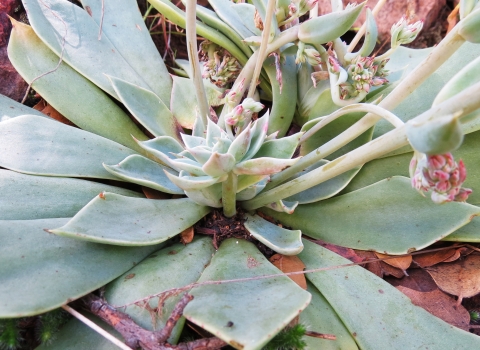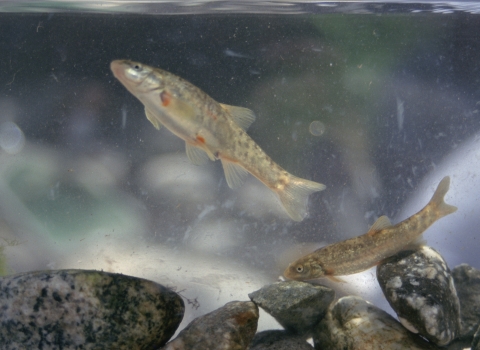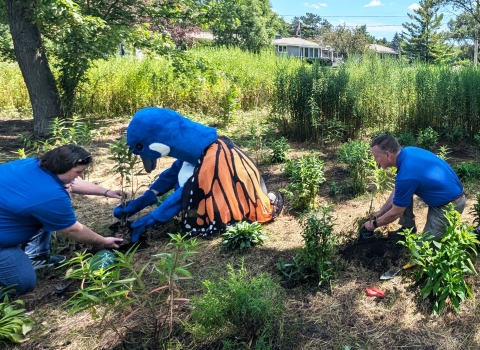Based on the best available science, the U.S. Fish and Wildlife Service is proposing to list the subterranean Miami cave crayfish as a threatened species under the Endangered Species Act with an accompanying section 4(d) rule. The Service is not proposing to designate critical habitat at this time.
The Miami cave crayfish (Procambarus milleri) is found exclusively under the city of Miami in the Biscayne Aquifer, where residents get their drinking water. The main threats to the tiny, pale crayfish include saltwater intrusion into the aquifer from sea level rise, more frequent tidal flooding, and increasing storm intensity.
“Safeguarding the Miami cave crayfish and its freshwater habitat benefits us all,” said acting Regional Director Mike Oetker. “Millions of Florida residents depend on the Biscayne Aquifer as a main source for drinking water — protecting it from saltwater intrusion is a win-win situation for people and wildlife,” added Oetker.
For threatened species, the Service uses Section 4(d) of the ESA to allow for exceptions for incidental take when the actions benefit the conservation of the species. The exceptions proposed for the Miami cave crayfish include construction and maintenance to prevent saltwater intrusion into the Biscayne Aquifer and restoring coastal wetlands to improve water quality or infiltration into the Biscayne Aquifer.
The announcement comes as the ESA turns 50 years old in 2023. Throughout the year, the Department of the Interior is celebrating the ESA's importance in preventing imperiled species' extinction, promoting the recovery of wildlife, and conserving the habitats upon which they depend.
Learn about the Miami cave crayfish in our Frequently Asked Questions.
The proposed rule and supporting materials are available at https://www.regulations.gov under Docket No. FWS-R4-ES-2023-0103. Comments on the proposed rules must be submitted by November 20, 2023. Using the Federal eRulemaking Portal, search for docket number FWS-R4-ES-2023-0103. Comments submitted electronically must be received by 11:59 p.m. Eastern Time. The agency must receive requests for public hearings in writing at the address shown below by November 6, 2023.
For further information contact Lourdes Mena, Division Manager, Florida Classification and Recovery, U.S. Fish and Wildlife Service, Florida Ecological Services Field Office, 7915 Baymeadows Way, Suite 200, Jacksonville, FL 32256–7517; telephone 904–731–3134. Individuals in the United States who are deaf, deafblind, hard of hearing, or have a speech disability may dial 711 (TTY, TDD, or TeleBraille) to access telecommunications relay services. Individuals outside the United States should use the relay services offered within their country to make international calls to the point-of-contact in the United States.



